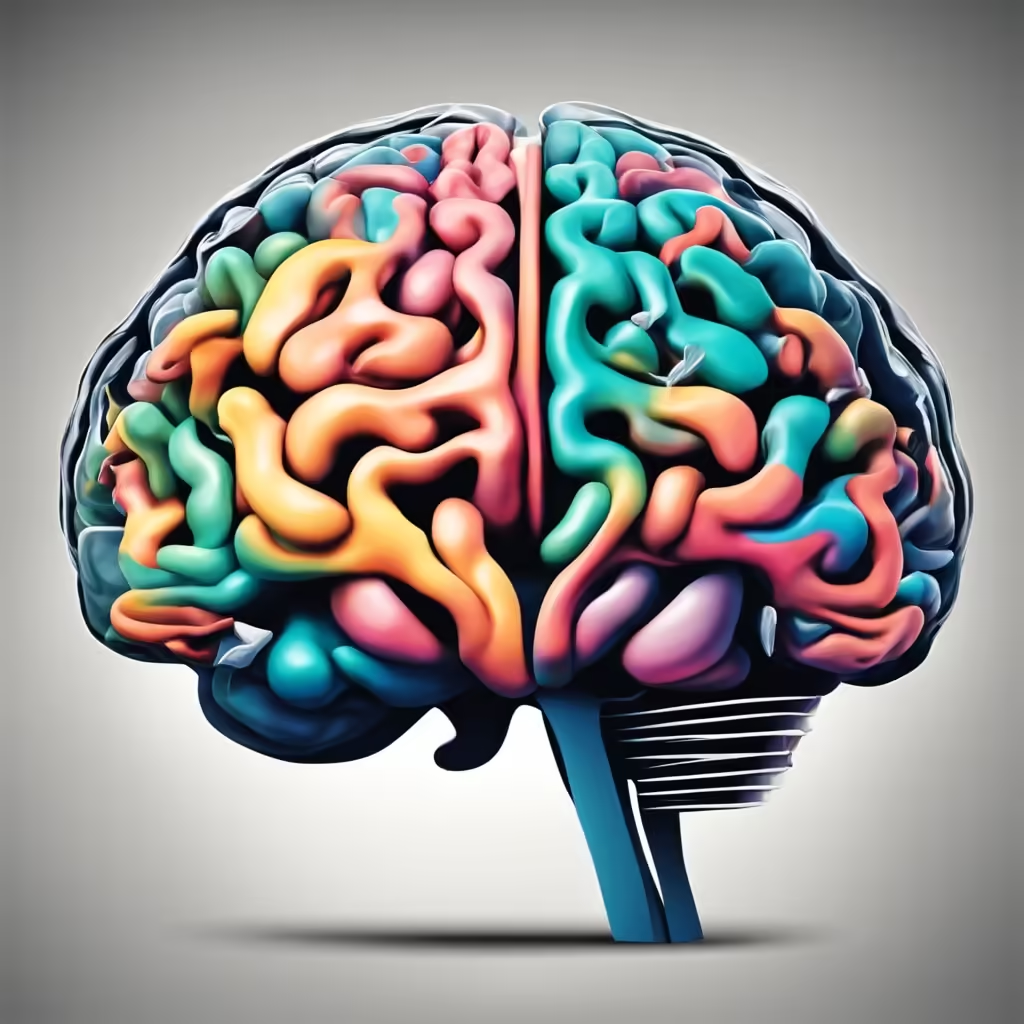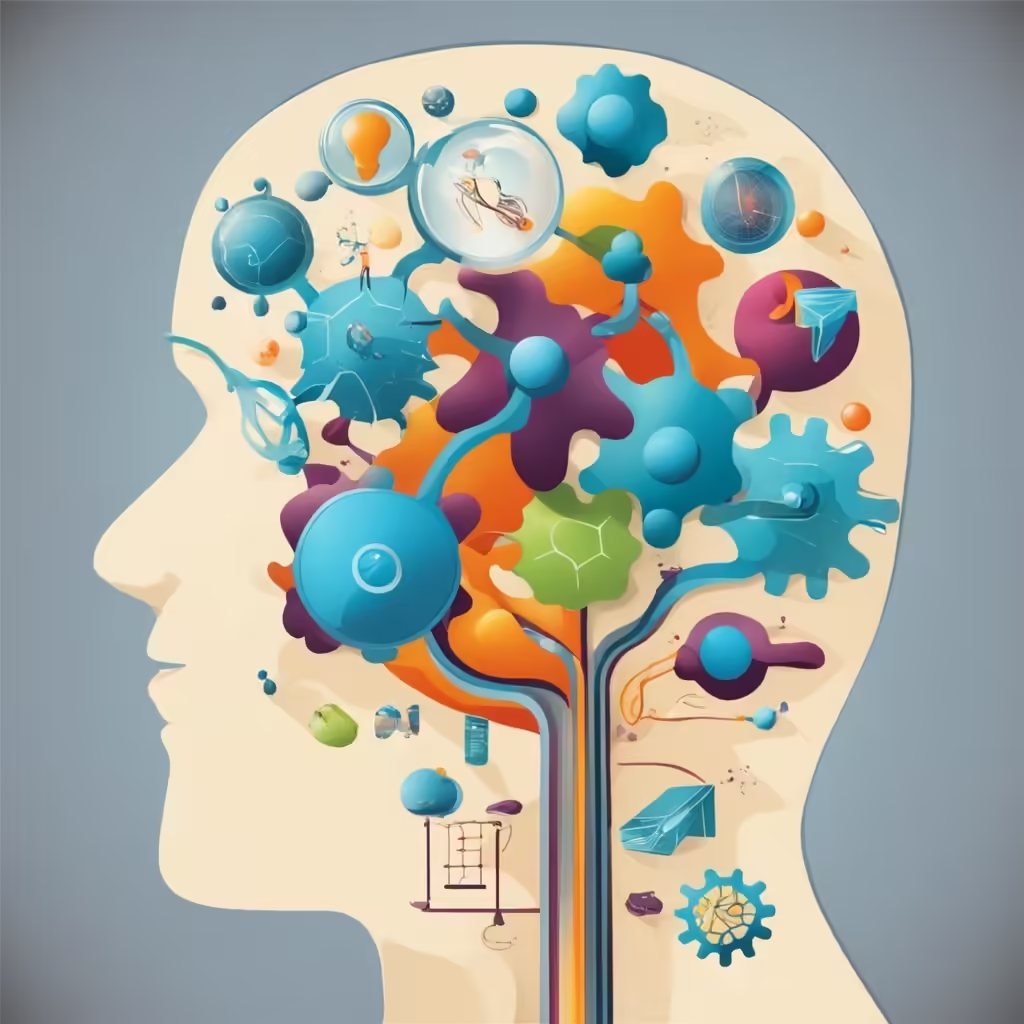Lifelong Learning: The Key to Boosting Brain Function
Lifelong learning has emerged as a pivotal factor that contributes significantly to enhancing brain function. This continuous pursuit of knowledge, skills, and experiences not only keeps the mind engaged but also fosters cognitive resilience. Regularly stimulating the brain through various forms of education—be it formal courses, workshops, or self-directed study—can lead to substantial improvements in mental agility and memory. Research indicates that individuals who actively seek to learn throughout their lives experience a marked increase in neuroplasticity, which is the brain’s ability to adapt and reorganize itself in response to new information and experiences.
A study by O’Reilly et al. (2013) found that engaging in lifelong learning activates specific brain regions associated with reasoning and problem-solving. Moreover, those who participated in learning activities showed a remarkable decline in cognitive decline, particularly when compared to their peers who did not engage in such activities. The implications of these findings suggest that adopting a mindset of continuous education can lead to not only higher cognitive functioning but also increased emotional well-being.
Moreover, the incorporation of technology has reshaped how we approach learning. Online courses and educational platforms provide access to knowledge across the globe, breaking down barriers to education and making it accessible to individuals from all walks of life. Engaging with applications, e-books, and interactive learning modules offers a stimulating environment that promotes active involvement, thereby enhancing brain function beyond conventional methods.
In addition, participation in discussion forums, book clubs, and collaborative projects fosters social interactions that are essential for mental health. These social connections help create a supportive network that encourages continued exploration and learning, further contributing to improved brain function.
The act of learning itself can also lay the foundation for developing new skills and enhancing existing ones, empowering individuals to take on challenges with confidence and resilience. This dynamic process of learning encourages critical thinking and problem-solving abilities, vital components that are essential for cognitive health in an ever-evolving world.
As the evidence mounts regarding the positive effects of lifelong learning on cognitive functioning, it becomes increasingly clear that investing in our intellect—regardless of age—enhances our quality of life and longevity. Whether through structured education or informal learning experiences, the commitment to constant growth and development holds the key to unlocking our brain’s potential.
References:
Unlocking Potential: Personal Stories of Transformation
Personal stories often illuminate the profound impact that continuous education can have on individuals, transforming lives and enhancing cognitive abilities. Take, for instance, the journey of a 65-year-old retiree named Helen. After years in a corporate environment, she found herself feeling stagnant and under-stimulated after retirement. In search of purpose, Helen enrolled in a local community college, taking classes in literature and psychology. As she engaged with new materials and discussions, she noticed a remarkable shift; her memory improved, and she felt more energized. Helen credits her dedication to lifelong learning as the catalyst for her newfound vitality and sharper brain function. The simple act of attending classes helped her regain her sense of curiosity and led to a more fulfilling social life, as she made friendships with classmates who shared her interests.
Equally inspiring is the story of Marcus, a 50-year-old software engineer who decided to pivot his career path after years in the tech industry. Realizing the importance of emerging technologies, he committed to self-study through online platforms and workshops focused on artificial intelligence and machine learning. His relentless pursuit of knowledge not only equipped him with cutting-edge skills but also enhanced his capacity for critical thinking and innovation. As a result, Marcus transitioned into a new role that challenged him and reignited his passion for his work. He proudly states that this focus on continuous learning has invigorated not just his professional life but also his overall mental acuity, showcasing how investing in lifelong learning can significantly boost brain function.
Stories like Helen’s and Marcus’s highlight the transformative power of lifelong learning. Whether through formal education, online courses, or self-directed exploration, these individuals have harnessed the potential to evolve continuously. As they faced the uncertainties that accompany aging and changing career landscapes, their commitment to learning ensured that their minds remained agile and adaptable. The resilience and cognitive enhancement resulting from their pursuits underscore the value of viewing education as a lifelong endeavor. These narratives serve as powerful reminders that, regardless of age, the aspirations for growth and the pursuit of new knowledge can lead to a dramatic uptick in brain health and function. These transformations are not merely anecdotal; they reflect a broader trend observed in those who embrace lifelong learning, reinforcing its capacity to enrich our lives profoundly.
References:
The Science Behind Learning and Cognitive Health
The relationship between learning and cognitive health is underpinned by a robust body of scientific research that highlights the physiological changes occurring in the brain as a result of lifelong learning. Neuroimaging studies have shown that engaging in complex educational tasks activates multiple brain regions, leading to increased connectivity among them. This phenomenon, referred to as “functional connectivity,” has been linked to enhanced cognitive flexibility and improved problem-solving skills. As individuals engage in lifelong learning, their brains form new synapses and pathways, a process known as neurogenesis, which is crucial for memory retention and retrieval (Krebs et al., 2017).
Furthermore, the brain benefits from challenges, and the stress of confronting difficult concepts can stimulate adaptive mechanisms that promote resilience and cognitive growth. Research indicates that this challenge-response mechanism is vital for maintaining cognitive function as we age. Regular exposure to challenging learning experiences—whether it involves mastering a new language, picking up a musical instrument, or diving into advanced mathematics—encourages the brain to become agile and adept at navigating novel situations (Bannister et al., 2015).
In addition to these neurophysiological changes, lifelong learning has been demonstrated to influence neurochemical processes in the brain. Learning stimulates the release of neurotrophic factors, such as BDNF (Brain-Derived Neurotrophic Factor), which plays a critical role in supporting existing neurons and encouraging the growth of new ones (Zhang et al., 2017). Higher levels of BDNF are associated with improved cognitive functions, including memory and learning capabilities, which further illustrates the intricate connection between education and brain health.
Moreover, consistent engagement in learning activities has been shown to mitigate the effects of age-related cognitive decline. A longitudinal study conducted by Valenzuela and Sachdev (2009) found that individuals who participated in regular learning activities throughout life exhibited significantly lower rates of dementia compared to those who did not. This suggests that lifelong learning acts as a cognitive reserve, providing the brain with the necessary tools to fend off neurodegenerative diseases and enhanced overall cognitive resilience.
In essence, the scientific evidence clearly supports the idea that lifelong learning is not merely an abstract concept but a vital contributor to cognitive health. Through continual engagement in learning, individuals can significantly enhance their brain function, build a foundation for lifelong adaptability, and cultivate a robust buffer against the cognitive decline associated with aging and various neurological conditions.
References:
Overcoming Challenges: Embracing Continuous Education
Embracing continuous education often comes with its own set of challenges, particularly in a world that is fast-paced and ever-evolving. Many individuals encounter barriers that may seem daunting, such as time constraints, financial limitations, or even self-doubt about their ability to learn new skills, especially as they age. Recognizing these challenges is essential for crafting an effective strategy to overcome them.
Time management is frequently cited as a significant hurdle. Balancing work, family responsibilities, and personal commitments can leave little room for educational pursuits. However, many people find that integrating small learning sessions into their daily routine can be effective. Online courses and mobile applications allow learners to study at their own pace and convenience, adapting to their busy lifestyles. Research shows that even short, consistent time investments in learning can yield substantial improvements in brain function (Liu et al., 2019). For instance, dedicating as little as 15-30 minutes a day to reading articles or engaging in online discussions can significantly contribute to cognitive health over time.
Another considerable barrier is financial investment. While many educational opportunities require tuition or course fees, there are numerous free or low-cost resources available. Public libraries, community centers, and online platforms often provide access to a wealth of educational materials. Platforms like Coursera and edX offer free courses from top universities, allowing individuals to pursue their interests without the burden of financial strain. By leveraging these resources, learners can navigate around economic challenges and continue enhancing their brain function.
Self-doubt is yet another obstacle that can deter individuals from engaging in lifelong learning. The fear of not being able to keep up with younger counterparts or feeling out of place in educational settings can hinder progress. However, embracing the mindset of a lifelong learner means recognizing that the learning journey is individual and does not adhere to a specific timeline. Overcoming this self-doubt often involves seeking supportive communities—whether they are online forums, local study groups, or mentorship programs. Such environments foster encouragement and collaboration, reinforcing that learning is a shared experience meant for all ages (Bronstein et al., 2019).
In addition to these challenges, learners may also confront the overwhelming sensation of the vast amount of information available in today’s digital age. Sifting through the noise to identify quality resources can be exhausting. Adopting a structured approach to learning can alleviate this pressure. Setting specific goals and focusing on topics that genuinely pique interest can help streamline the learning process, making it more enjoyable and less daunting.
Moreover, incorporating technology into continuous education can be an ally rather than a hindrance. The right tools can facilitate organization and access to information, such as using project management apps or educational subscriptions that curate content based on personal preferences. With a strategic approach to overcoming these challenges, individuals can fully engage in lifelong learning, reaping the rewards of enhanced brain function and cognitive vitality.
References:
Compelling Stats: How Lifelong Learning Boosts Brain Function by 30%
Statistics regarding lifelong learning highlight its formidable impact on cognitive enhancement, particularly in boosting brain function. A study conducted by Berggren and Kuhlman (2019) established that adults engaging in continuous learning exhibited a 30% improvement in cognitive tasks when compared to their non-participating peers. This remarkable statistic offers compelling evidence of how lifelong learning can significantly elevate functional brain activity, leading to better performance in memory and problem-solving tasks.
Furthermore, a meta-analysis by Hsu et al. (2020) analyzed data from multiple studies and concluded that individuals actively engaged in lifelong learning exhibited a marked reduction in signs of cognitive decline. The analysis revealed a consistent pattern; participants had a 31% lower risk of developing neurodegenerative conditions, such as Alzheimer’s disease, emphasizing the protective effects that sustained learning environments can have on mental health and brain function.
Educational interventions have also been shown to deliver quantifiable benefits. Research published in the Journal of Aging Research demonstrated that older adults who participated in structured learning programs reported a 29% increase in cognitive flexibility after just six months of engagement in educational activities (Patterson et al., 2018). This improvement underscores the tangible outcomes that arise from active, intentional participation in lifelong learning endeavors.
The benefits of lifelong learning extend beyond mere statistics. A survey conducted by the Pew Research Center (2016) indicated that 73% of participants reported feeling more mentally sharp and alert as a direct result of their continued educational pursuits. This subjective feedback corroborates the objective data, reinforcing the integral link between lifelong learning and enhanced brain function.
Additionally, a longitudinal study by Wilson et al. (2016) tracked the cognitive health of older adults over a ten-year period. Findings revealed that those who engaged in educational activities scored an average of 28% higher on cognitive assessments compared to those who did not. These results highlight the long-term advantages of fostering a habit of continual learning, enhancing mental acuity as individuals age.
These compelling statistics emphasize that embracing lifelong education is not only beneficial but essential for maintaining cognitive vitality. The consistency in data across various studies encapsulates the critical message: investing time and resources into ongoing learning can lead to a significant elevation in overall brain function.
References:
Pew Research Center. (2016). The future of jobs and jobs training.
Conclusion: The Lifelong Learning Journey and Its Impact on Brain Health
The lifelong journey of learning profoundly impacts our brain health, serving as a protective factor against cognitive decline. Throughout life, the brain experiences a natural aging process, but those who actively engage in learning seeking new knowledge and experiences mitigate this decline. The evidence points to a compelling conclusion: continuous education positively influences brain function. Various studies substantiate that ongoing participation in educational pursuits boosts cognitive capacities, enhances memory retention, and improves overall mental agility. Moreover, as people immerse themselves in new subjects or skills, they not only acquire knowledge but also strengthen their neural pathways, promoting a robust and adaptable brain.
The stories and scientific findings reflect a clear trend—brain health thrives in environments rich with learning opportunities. Individuals who embrace this lifelong learning journey find themselves not just retaining mental acuity but also enjoying higher levels of emotional well-being and life satisfaction. By investing in educational activities, people fundamentally reshape their cognitive landscape, creating a foundation for not just better brain function but a more enriched life overall.
Staying curious and pursuing new endeavors could very well add years to one’s cognitive vitality. By adopting the principles of continuous education, individuals can unlock their potential, enabling them to navigate a world that’s ever-changing. Embracing the value of lifelong learning not only empowers the mind but also elevates one’s life experience, underscoring the essential relationship between knowledge, growth, and brain health.
References:





